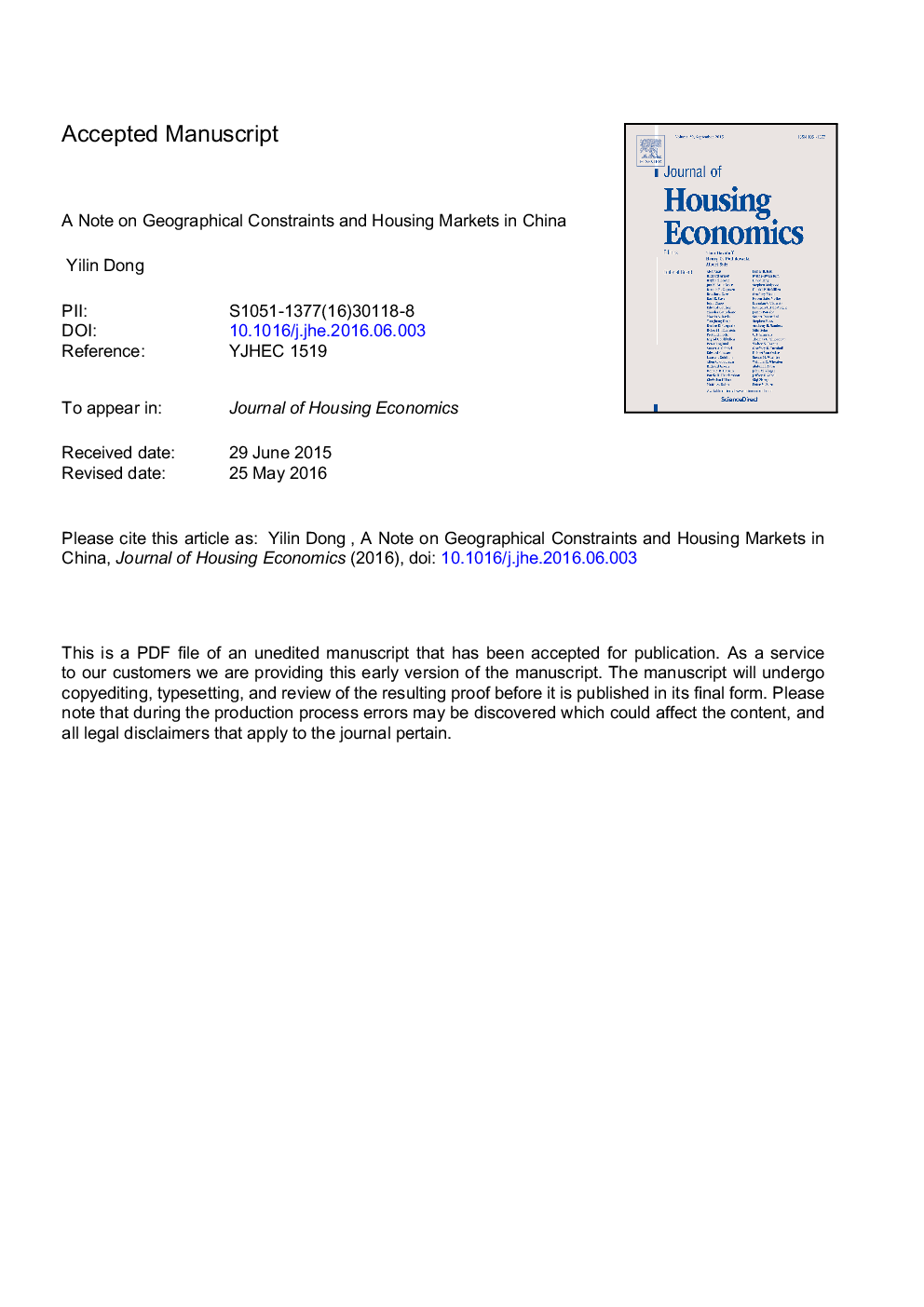| Article ID | Journal | Published Year | Pages | File Type |
|---|---|---|---|---|
| 962551 | Journal of Housing Economics | 2016 | 18 Pages |
Abstract
This paper examines the influence of land supply on housing markets in urban China. The extent to which geographical and man-made land constraints influence housing prices and quantities is explored. Using a sample of 35 cities in China from 2003 to 2012, I find that cities with less naturally available land have experienced greater price appreciation and the quantity response is less in those places. The results imply that geography matters in Chinese housing markets where land is discretely allocated by the government. In cities where there is more land naturally available, the government may be less concerned about the loss of arable land and be more permissive with development. Moreover, my findings imply that the allocation of land use via government decision in China is quasi-exogenous to changes in housing price and quantity, suggesting that decisions by governments about land supply may not be dependent on housing prices.
Keywords
Related Topics
Social Sciences and Humanities
Economics, Econometrics and Finance
Economics and Econometrics
Authors
Yilin Dong,
